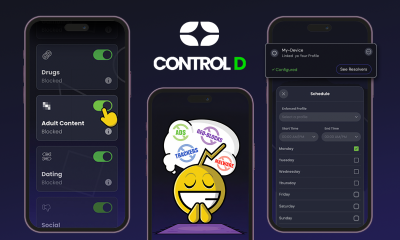Personal Finance
5 Best Long-Term Disability Insurance Companies

-
Best for Policy Customization
MassMutual
Our Partner
-
Year Formed:
1851
-
A.M. Best Rating:
A++
-
Coverages Offered:
Life, disability, long-term care, annuities
-
States Available:
48
Get a Free Quote
-
-
Best for High-Risk Occupations
Assurity
Our Partner
-
Year Formed:
2007
-
A.M. Best Rating:
A-
-
Coverages Offered:
Life, accidental death, disability, critical care, annuities
-
States Available:
49
Get a Free Quote
-
-
Best for Large Coverage Area
Guardian
Our Partner
-
Year Formed:
1860
-
A.M. Best Rating:
A++
-
Coverages Offered:
Disability, dental, investment services
-
States Available:
50
Get a Free Quote
-
-
Best for High Monthly Benefits
Mutual of Omaha
Our Partner
-
Year Formed:
1909
-
A.M. Best Rating:
A+
-
Coverages Offered:
Life, disability, annuities and Medicare suppliment
-
States Available:
49
Get a Free Quote
-
-
Best for Reputation
Northwestern Mutual
Our Partner
-
Year Formed:
1857
-
A.M. Best Rating:
A++
-
Coverages Offered:
Life, disability, long-term care, annuities
-
States Available:
49
Get a Free Quote
-
Long-term disability insurance is helpful if you’ve lost your ability to work due to an injury or illness. It will provide funds to make up for lost income, which can be essential for ensuring quality of life for you and your family after an unexpected life change.
When looking for an insurance policy that meets your needs, it’s always important to research and compare your options. Read on to view our picks for the best long-term disability insurance companies.
Our Top Picks for Best Long-Term Disability Insurance
-
MassMutual — Best for Policy Customization
-
Assurity — Best for High-risk Occupations
-
Guardian — Best for Large Coverage Area
-
Mutual of Omaha — Best for High Monthly Benefits
-
Northwestern Mutual — Best for Reputation
Best Long-Term Disability Insurance Reviews
Pros
-
Highly-rated customer service
-
Coverage up to age 70
-
Recurring disability rider
Cons
-
60-day elimination period
-
No online quote generator
-
Some cost concerns
Why we chose it: MassMutual’s expansive offerings and forward-thinking policy criteria give customers plenty of options to customize policies to their needs.
With MassMutual’s long-term disability insurance, you can choose the amount of pre-disability income that your policy protects, providing some flexibility in terms of monthly premiums and disability coverage.
You can purchase coverage for up to 65% of your income. This is particularly helpful if you’re self-employed or an entrepreneur without an established company to provide insurance for you.
Mass Mutual offers coverage up to age 70 and no medical exam is required in most cases. What’s more, coverage is portable, so you can take your policy with you if you get a job with a new employer. You can get benefit periods of two, five or 10 years with waiting periods starting at 60 days.
MassMutual’s Own Occupation rider provides disability insurance if you cannot perform the basic functions of your identified role, even if you technically could work in another function. You can also add riders for unique features like student loan coverage and presumptive cost of living increases.
Additionally, RetireGuard coverage lets you continue to contribute to your retirement funds throughout your disability period. This is a helpful benefit if you use a portion of your take-home income to save for your retirement.
MassMutual’s online calculator can give you an approximation of rates, but you can’t buy a policy online and must work directly with an agent. This might be beneficial for customers who prefer a one-on-one personal interaction but may be a hurdle for those who do not.
MassMutual has an A++ rating from A.M. Best, one of the main credit rating agencies, indicating its ability to pay claims. It also gets above-average ratings from online customer reviews, with positive reviews often praising the company’s customer service and plan offerings, while complaints mention issues with filing and receiving payouts for claims.
Pros
-
Coverage for public safety workers and manual laborers
-
Extensive rehabilitation benefits
-
Customizable plans
Cons
-
High premium costs
-
Poor customer service
Why we chose it: We chose Assurity because it’s one of the few companies that offers disability insurance coverage for workers with high-risk occupations like mining, law enforcement, public safety and construction.
Assurity offers coverage in 49 states and the District of Columbia and has been in business for more than 130 years. It offers long-term disability options with waiting periods between 30 and 365 days and four occupational classes.
Assurity has an online quote calculator with a no-obligation clause, which lets you generate an estimate to compare with other policies. Benefit periods are one, two, five or 10 years, and monthly costs are above average for the industry.
For occupations that can be classified as high-risk, Assurity offers a number of plan and rider options. Riders include a home modification add-on, which provides coverage for home renovations after a catastrophic injury or illness. This is helpful, as it can be expensive to add features to your home like external ramps, medical beds and elevators to accommodate new needs. Riders are also available for organ donation, occupational therapy and presumptive disability.
While reviewers say Assurity offers more transparency than others in terms of premium cost at the initial quote stage, costs are still a concern for some. Online reviews note that since Assurity is one of the only insurance providers to grant coverage to high-risk occupations, they may feel like it’s their only choice and will end up paying extra for Assurity’s products and services. Some reviewers have also noted that customer service availability is often lacking in comparison to other insurance companies.
Assurity has an A- rating from A.M. Best.
Pros
-
Availability in all 50 states and D.C.
-
Strong financial ratings
-
Well-reviewed customer service
Cons
-
Lack of pricing information on website
Why we chose it: Guardian Life Insurance provides long-term disability coverage in all 50 states and Washington D.C., a claim that some other insurance companies can’t make.
Guardian Life has been in business for more than 150 years and, in addition to long-term disability insurance, the company offers a full suite of insurance products, including life, medical, dental and vision.
Guardian offers both short and long-term coverage for disability insurance, with terms ranging from two to 20 years.
Like others in the industry, Guardian Life has adjusted its offerings to keep pace with the changing face of the American workforce. Notably, it offers a policy for stay-at-home spouses, which is helpful for those responsible for caring for others.
Guardian Life offers an overhead expense rider, which provides coverage for the customer’s normal business expenses and overhead costs such as rent, liability insurance and employee salaries. This is helpful for the entrepreneur or small business owner looking for a policy to cover the unique aspects of their work.
Guardian Life also covers a range of conditions that many other insurers don’t, such as specific policies for cancer and HIV coverage.
With an A++ rating from A.M. Best and top-tier ratings from Fitch and Standard & Poor, Guardian Life is a highly regarded company in the insurance market. Online reviewers appreciate the customer service and responsiveness of Guardian Life’s support staff. With satellite offices located around the country and a toll-free support number, as well as online chat, it’s easy to find help from Guardian Life.
Customers have noted that the Guardian Life website can be a bit unclear, with a lack of information on policy costs and pricing associated with additional riders and coverage. Overall, however, Guardian Life is a far-reaching option for long-term disability insurance.
Pros
-
Coverage up to age 79
-
Maximum monthly benefit up to $20,000
Cons
-
No automatic benefit increase
-
Pricing information not available on website
Why we chose it: High earners searching for reasonable income protection to maintain their established quality of life might look to Mutual of Omaha for their long-term disability insurance. With maximum monthly benefit payouts ranging from $300 to $20,000, Mutual of Omaha is best for those who may qualify for a higher monthly insurance payout, like a physician or an executive.
Mutual of Omaha’s offerings are varied and flexible. You can customize different aspects of your policy, including the elimination period — which is the time between your injury and when you receive benefit payments — with options from 30, 60, 90, 180, 365 and 730 days. You can get up to 10 years of benefits with Mutual of Omaha.
The company offers coverage for accidents only as a complementary policy to its long-term insurance product. This could benefit someone who is temporarily waylaid because of an accident but might not need to file a long-term insurance claim.
Mutual of Omaha has higher-than-average monthly payouts and will pay up to $20,000 per month in income replacement, depending on your prior income. There’s also an optional rider for cost-of-living increases, as well as a residual disability benefit to make up the difference in income if you need to accept a lower-paying position as a direct result of your condition.
Unfortunately, you can’t get pricing information from its website directly. To get a quote or sign up for a policy, you must speak with a customer service representative.
Additionally, Mutual of Omaha, despite being flexible in many areas, does have some stipulations that limit it when compared to other insurers. Importantly, there is no automatic benefit increase, which can be limiting for those collecting long-term disability benefits for an extended period.
Mutual of Omaha maintains an A+ rating from the Better Business Bureau (BBB) and a superior rating from A.M. Best.
Online customer reviews note that Mutual of Omaha can be slow to completely and adequately respond to questions, although claims payouts are generally efficient and on time. Reviewers also say that Mutual of Omaha’s rates are competitive.
Pros
-
Many add-on rider options
-
High customer satisfaction ratings
-
Specialized occupational coverage
Cons
-
High premiums
-
Limited standalone policy options
Why we chose it: Northwestern Mutual Insurance, which has been in business since 1857, is well-known in the insurance industry and highly rated by multiple third-party institutions for its financial stability and policy offerings, from long-term care insurance to disability coverage.
Northwestern Mutual offers riders that cater to policyholders in a wide variety of occupations, income classes, ages and personal life situations. You can get coverage terms for up to 20 years.
Northwestern Mutual offers limited opportunities for standalone policies, instead focusing its offerings on group and employer-sponsored plans. If you are self-employed or employed by a company without a disability option, this effectively eliminates you from purchasing a Northwestern Mutual policy.
The company has an A- rating from the BBB, indicating high responsiveness to customer complaints. It also boasts an A++ rating from A.M. Best and is in the top five ranked insurance companies by J.D. Power, which evaluates companies based on customer satisfaction and service.
Customer reviews mention Northwestern Mutual’s timely, empathetic and accurate responses to customer claims and issues. Reviewers say that claims are generally correct and paid out in accordance with policy stipulations. But many reviewers want more online tools, saying they’d like Northwestern Mutual to launch an online quoting function, even just to generate a quick quote or quote estimate.
Additionally, customers have reported higher Northwestern Mutual premiums as compared to others in the market, with few opportunities for discounts and bundling. While there are some financial incentives for consistent on-time payments and longer contract terms, customers on a strict budget might look elsewhere for policies.
Other long-term disability insurance we considered
Breeze
Pros
-
Quick online policy comparison
-
Enrollment and purchase process completely online
Cons
-
Does not offer policies directly
-
New to the market
Breeze, which was launched in 2019, is not a traditional long-term disability insurance provider. It’s a marketplace of insurance providers, allowing you to identify, compare and purchase the best policy from the options provided by Breeze.
This model works if you need a basic long-term disability insurance policy and need it fast. You can purchase policies online in as little as 10 minutes. And because you can easily compare disability insurance plans filtered by your needs, you can find the best value for your situation.
However, since Breeze is new to the market, it hasn’t earned the reputation and strong customer reviews that many others on this list have.
Principal Financial Group
Pros
-
Return-to-work resources program
-
Bundling opportunities
-
Rehabilitation and death benefits
Cons
-
Lower maximum benefit
-
Lower maximum purchasing age
-
Conditionally renewable after age 65
With superior ratings from A.M. Best and Moody, as well as a spot on the Fortune 500, Principal Financial Group is another well-known company offering long-term disability insurance.
Principal Financial Group offers comprehensive long-term disability benefits, including its Return-to-Work Resources program and benefits for occupational and physical rehabilitation. It also offers a survivor benefit payout for your dependent should you die while collecting your long-term disability insurance claim.
However, Principal does have a lower maximum payout benefit than others, a lower maximum purchasing age of 60, and is only conditionally renewable after age 65.
Unum
Pros
-
Highly-rated customer service
-
Up to 66% income replacement
Cons
-
Only offers group and employer-sponsored plans
-
Limited available riders
-
Higher cost
Based on market share, Unum is a leader in group and employer-sponsored long-term disability insurance. It offers many of the perks as other insurance companies, including a high monthly benefit and income replacement for higher-earning individuals. It also has highly regarded customer service, according to online reviews.
However, you can’t purchase individual policies from Unum. This restriction also means that Unum’s policies tend to be less customizable, with a limited number of riders and add-on options.
Long-Term Disability Insurance Guide
What is long-term disability insurance?
Not to be confused with long-term care insurance, long-term disability insurance provides partial income protection in the event that an illness or injury prevents you from working for an extended period of time — typically more than six weeks. Policies are customized for each individual based on occupation, age, health history, current and forecasted salary, selected coverage options and add-ons. Long-term disability insurance can be used to help fund your lifestyle and pay your bills if you are recovering from a serious illness or injury and cannot return to work.
Short-term insurance is also available if you need paid time off for six weeks or less. Short-term disability insurance is commonly used for more minor injuries and illnesses with a faster recovery time. You can also use short-term disability insurance for pregnancy and recovery after the birth of a child.
How does long-term disability insurance work?
Like other types of insurance, you can purchase long-term disability insurance from a licensed insurance agent or company. During your insurance acquisition process, you might need to complete a basic medical exam to help determine your premium and coverage rates, similar to the process of buying life insurance. Once your policy benefits start, you’ll pay a regular premium to retain your coverage.
If you get sick or injured, you will need to file a claim with your insurance company as soon as you can. You’ll work with your physician and employer to get supporting documentation stating that you are partially or fully unable to work in your current role plus the length of time you expect to be incapacitated.
Following this, you will start an elimination, or waiting, period. Once the waiting period lapses, you will begin to receive regular payouts for a pre-defined portion of your salary. You should then work with your physician, employer and insurance company to determine a rehabilitation and return-to-work plan, if applicable and reasonable.
What to look for in a long-term disability insurance plan
Long-term disability plans can seem complex. If you’re shopping for long-term disability insurance, here are a few things to keep in mind as you select a provider and policy.
Affordable monthly premiums
Long-term disability insurance premiums should be reasonable and not be a burden on your budget. Premiums will depend on the insurer, policy and additional riders that you choose to purchase.
Getting several quotes to see the range of available rates and associated benefits might be a good first step in determining the best premium amount for you and your financial situation.
Available coverage where you live
Long-term disability coverage, like other forms of insurance, is partially governed by state and federal lawmakers. Insurance companies need approval and licensure to sell their policies in each state, and not all insurance companies are licensed to sell all of their coverages in every state.
Before you enter into an agreement for long-term disability coverage, check with your company of choice to be sure all of the insurance selections you made can be filed and paid in your state of residency. If you’re planning to move to a new state, perhaps for retirement, you’ll want to consider the coverage rules and regulations in that location.
Coverage limits that suit your needs
As you work with your insurance company to choose your plan, you should take a careful look at your current and projected spending to best identify coverage limits for your lifestyle. You’ll want to consider the costs of high-ticket items in your life, including mortgages, car payments and childcare. If there are known significant future expenses in your life, like paying for a dependent’s college tuition or for home renovations, you’ll want to plan for those costs as well.
Remember, increasing your coverage limit will impact your premium rate, so you’ll want to balance your monthly premium with the output that you’d receive should you need to file a claim for a long-term illness or disability.
Short elimination periods
An elimination period is a waiting period that claimants must complete before starting to receive benefits. These waiting periods vary by company and by policyholder choice. Some companies offer a 30-day waiting period as their shortest timeframe, and others begin their waiting period at 60 days or more. Typically, the longer the elimination period, the lower your premium will be.
Note that medical bills on your credit report no longer affect your credit score, which means there’s less pressure to get immediate payouts from your insurance company.
An easy online quote process
For long-term disability insurance, having an easy online quote process that you can complete from the comfort of your home and on your own time can be helpful. Some companies require that you meet with an agent on the phone or in person, and others allow you to see pricing ranges, explore coverage and even sign up for policies without direct contact with a representative.
If you have questions or concerns about your policy, it might be a better choice to work directly with an agent. On the other hand, if you simply want to buy a basic, no-frills long-term disability insurance plan to protect yourself, an online service might suffice.
Long-Term Disability Insurance FAQ
What is the difference between long-term disability insurance and medical insurance?
Medical insurance works to offset medical costs, like hospital stays, emergency room care and doctor’s visits. Long-term disability insurance is meant to be income protection in the event that a policyholder is unable to work due to illness or injury. Both have their place and are an important part of a smart financial strategy to combat risk and prepare for future unknowns.
How long does long-term disability insurance last?
The benefit period for long-term disability insurance can vary based on the company and policy you choose. You can typically get long-term disability insurance on terms from two to 20 years, or until you reach retirement age. The length of time you receive long-term disability insurance will depend on the nature and severity of your illness or injury. It will also depend on an assessment made by your physician, employer, and insurance company as to your ability to work in the role and occupation you previously held.
Is long-term disability insurance tax deductible?
No. Premiums for long-term disability insurance are not tax deductible, as long as the premiums are paid after taxes. However, payment and taxation can be complex, so if you’re not sure, please speak with your insurance agent.
Do I need long-term disability insurance or long-term care insurance?
The decision to purchase either long-term disability or long-term care insurance is up to each individual, as the coverages are similar but not identical. Long-term disability insurance is designed to offset a loss of income, while long-term care insurance is designed specifically to pay for medical care and assistive care when you reach an older age. If you are concerned that the amount of long-term disability insurance you are set to receive will not provide enough funds for your medical bills and your day-to-day expenses as you age, you might consider purchasing both policies.
How We Chose the Best Long-Term Disability Insurance
To choose the best long-term disability insurance, we looked at several factors and features of the best-performing companies in the insurance market. The main factors we looked at were company stability, policy offerings, flexibility, waiting periods, maximum benefit payout, maximum benefit enrollment time and age, optional riders, financial ratings and customer service.
Summary of Money’s Best Long-Term Disability Insurance
-
MassMutual — Best for Policy Customization
-
Assurity — Best for High-risk Occupations
-
Guardian — Best for Large Coverage Area
-
Mutual of Omaha — Best for High Monthly Benefits
-
Northwestern Mutual — Best for Reputation
© Copyright 2023 Money Group, LLC. All Rights Reserved.
This article originally appeared on Money.com and may contain affiliate links for which Money receives compensation. Opinions expressed in this article are the author’s alone, not those of a third-party entity, and have not been reviewed, approved, or otherwise endorsed. Offers may be subject to change without notice. For more information, read Money’s full disclaimer.
Read the full article here

-

 Personal Finance7 days ago
Personal Finance7 days agoGas prices drop as demand for driving fizzles out: AAA
-

 Investing7 days ago
Investing7 days agoCrowdstrike CEO Responds to Causing Largest IT Outage in History
-

 Side Hustles7 days ago
Side Hustles7 days agoHow to Build A Startup, From an Early Lyft, Twitch Investor
-

 Passive Income7 days ago
Passive Income7 days agoThe Top 5 AI Tools That Can Revolutionize Your Workflow and Boost Productivity
-

 Passive Income5 days ago
Passive Income5 days agoNLRB Drops Expanded Joint Employer Appeal
-

 Side Hustles6 days ago
Side Hustles6 days agoJake Paul: Mindset Hacks, Mike Tyson Fight, Embracing Fear
-

 Investing7 days ago
Investing7 days agoBoeing to supply E-7 in first major win since plea deal By Reuters
-

 Side Hustles5 days ago
Side Hustles5 days ago10 Effective Growth Marketing Strategies for Your Startup


















